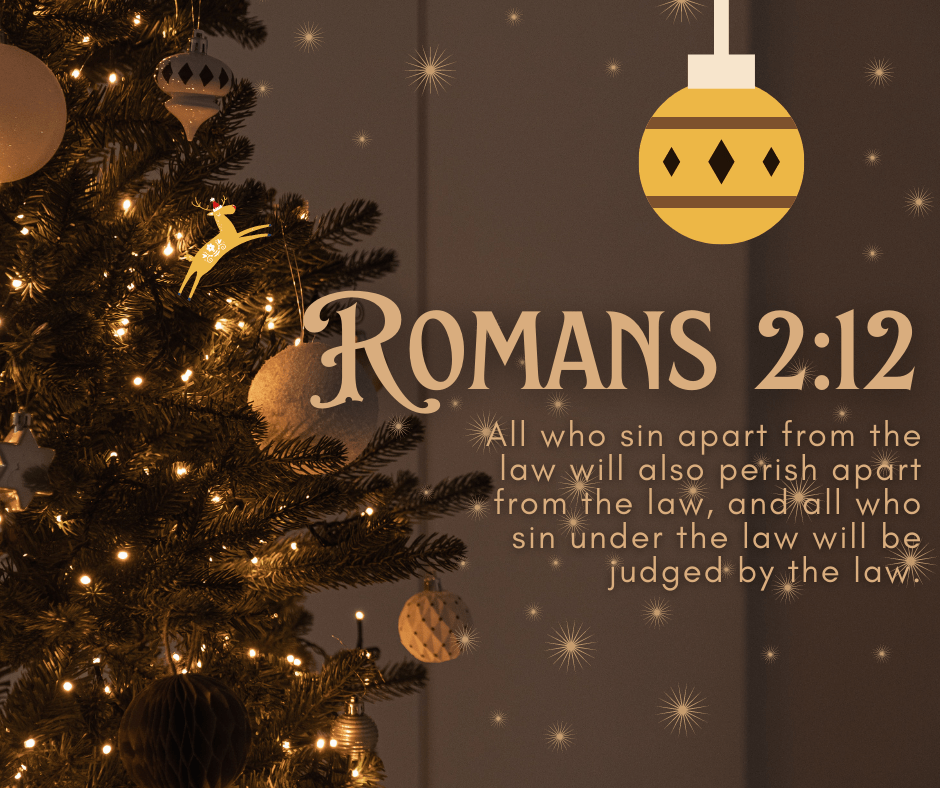
“All who sin apart from the law will also perish apart from the law, and all who sin under the law will be judged by the law.” – Romans 2:12
In the previous section of verses, Paul divided all of humanity into two categories: Those who lead good lives and are given eternal life by God (Romans 2:7) and those who are self-seeking and earn God’s wrath (Romans 2:8). God will judge each person according to that standard, Paul wrote, no matter whether Jew or non-Jew.
This seems, at first, like an endorsement of salvation by works. However, as Paul will show later, the first category is empty. Nobody is able to escape their own selfish and disobedient nature. “All have sinned and fallen short of the glory of God,” he will say in Romans 3:23.
Now Paul begins to answer all of his readers who are asking, “What about the law? Won’t the law protect the Jews from the wrath of God?” Paul describes two more categories for humanity: those who sin “apart from the law” and those who sin “under the law.” Paul is referring to the law of Moses, given to Israel by God at Mount Sinai, as described in Exodus 20 and beyond.
Notice that both of these categories contain those “who have sinned.” There is no third category of people, no group who have not sinned. Sinners without the law of Moses to follow—the Gentiles—will die and be judged by God without the law, because their sin is still sin. Sinners under the law—Jewish people who adhere to the rituals and sacraments of the law of Moses—will be judged by God according the law of Moses when they die. Each person is held to the standards of their own knowledge, and as Paul has already pointed out, God has given every person enough knowledge to be without excuse (Romans 1:18–20).
The point Paul is building towards is that the verdict will be the same in all cases. All have sinned, no matter what standard of good and evil they lived under.
© Copyright 2002-2021 Got Questions Ministries. All rights reserved.